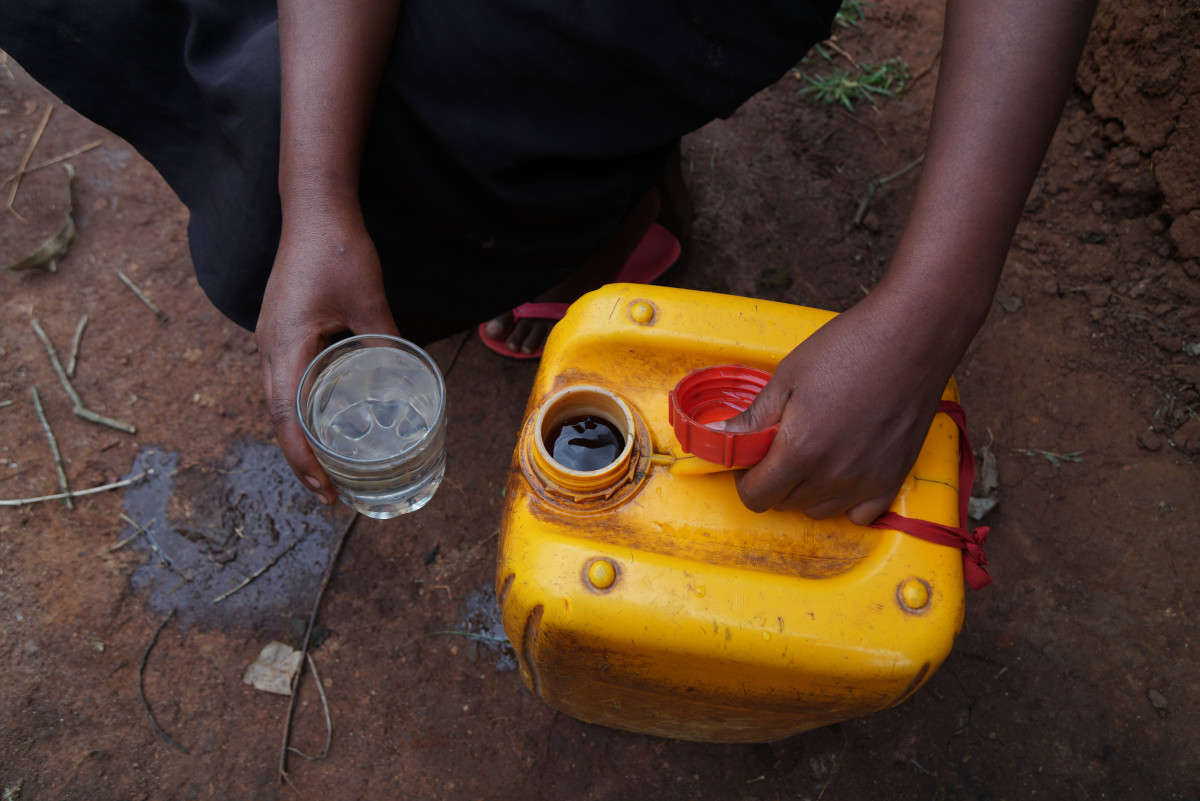💧 Clean water for all: Small investments are making big differences in Ethiopia’s urban water services
Published: Aug 5, 2025 Reading time: 4 minutes Share: Share an articleWith a rapidly growing urban population in Ethiopia, water and sanitation infrastructure development has lagged. Despite years of progress, more than half of Ethiopia’s urban residents still lack access to safe water. Outdated systems, overwhelmed teams, broken infrastructure, and deeper systemic issues made it hard for water utility offices to provide service. With Czech funding, our project is supporting service and infrastructure improvements.

Totaro Tirfe Sheko from Shone, Ethiopia, used to wait in long queues to pay the water bill at the town water utility office. Sometimes, the officers could not find how much he owed, as they had to manually search through paper documents.
Today, thanks to our project funded by the Czech Development Agency, we have supported the digitisation of their systems and trained staff, which enabled faster service delivery times with more transparency and reliability.
In nine towns across Central and South Ethiopia, and the Oromia Regions, we supported more effective systems. Water production and distribution data are collected systematically.
Water utility officers visit homes and measure water use by phone.
Data, such as the amount to be paid, is sent directly to the computer at the town water utility office, and the bill can be found immediately.
Systemic change
Ethiopia’s urban population continues to grow rapidly, rising from 9.8 million in 2000 to over 30 million by 2025. As of 2022, about 85.6% of urban residents have access to at least basic drinking water services, but only 42.3% benefit from improved water sources that meet reliability and safety standards. The sanitation challenge remains stark; just 9.2% of the urban population uses safely managed sanitation services.
These gaps highlight infrastructure shortfalls as well as deeper systemic issues, such as weak governance, limited technical capacity, lack of strategic planning, and implementation that hinder the delivery of resilient, equitable urban WASH services.
Rather than focusing only on service delivery, we embraced a systems-strengthening approach, designed to diagnose, reform, and reinforce the entire urban WASH management system. We supported the professionalisation of WASH services by strengthening WASH governance systems, including capacity building training, mentoring, and experience sharing at various governance levels.
From debt to stability
Key achievements include increasing the self-sustaining financial situation of utilities. At project initiation, only about 11% of water utilities were self-financing. By mid-2025, over 66% had reached financial sustainability, covering their operational costs.
This financial turnaround enables utilities to reinvest in network expansion, repair ageing systems, and improve overall service delivery. Once heavily indebted, the utility offices are now operating with confidence and stability.
Knowledge for wider transformation
This turnaround is the result of tailored capacity sharing. We provided targeted training to technical staff, utility managers, water board members, and customer forums in all nine towns. The participants learnt more about technical operations, water quality monitoring, financial and administrative management, and customer service.
Previously non-existent, Customer Forums were established to give citizens a voice. Thanks to GIS mapping, towns like Areka now have their first-ever water line maps, a crucial step toward improved planning and leak detection.
Clean water for all
According to the Ethiopian Government's WASH National Programme, Ethiopia plans to ensure 100% water supply coverage in towns by 2030. Between 1990 and 2020, the country made steady progress in expanding access to urban water supply. Yet in 2020, over 55% of urban residents still lacked access to safely managed water services, a figure lower than both the Sub-Saharan and global averages. The gap isn't just about pipes and pumps, as our project demonstrates. This blend of technology, capacity-building, and equipment ensured lasting institutional improvements.
This project’s impact has restored institutional confidence, empowered frontline staff, and improved customer satisfaction.
With renewed commitment, the lessons from our project can help accelerate Ethiopia’s journey toward sustainable, inclusive, and accountable urban water management for all.


